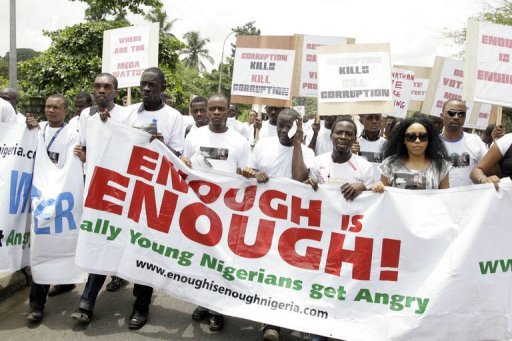Only those close to politicians benefit from government interventions – Nigerian youth
A report by the Nigeria Security and Reconciliation Programme, NSRP, has stated that 79 per cent of Nigerian youth feel that only those close to politicians benefit from youth employment and empowerment interventions.
The report titled ‘Winners or Losers: Assessing the Contribution of Youth Employment and Empowerment Programmes to Reducing Conflict Risk in Nigeria’, was launched at the Transcorp Hilton, Abuja, on June 26.
The research on which the report was based sought to answer the following questions: Do Nigeria’s youth and by extension, the country, stand to be ‘winners’ or ‘losers’ from government interventions in unemployment?
Are youth empowerment programmes sufficiently transparent and accountable, reaching the right beneficiaries? What is the linkage between youth grievances around employment schemes, and violent conflict? How can the government portfolio of youth empowerment and unemployment programmes maximise its contribution to a reduction of violent conflict in Nigeria?
The research also assessed the impact of government interventions on youth unemployment and restiveness.
The overarching message of the NSRP Winners or Losers report was that youth employment and empowerment programmes had an important role to play in reducing violent conflict if properly designed and administered.
The report assessed programming in this area at the federal level and in Kaduna, Kano and Rivers States.
It identified a number of recurrent challenges and offered recommendations for the future.
It noted that the technical quality of some of government interventions – such as the Subsidy Re-investment and Empowerment Programme, SURE-P, Youth Enterprise with Innovation in Nigeria, YouWIN!, and Youth Employment and Social Support Programme, YESSO, as well as longer-standing programmes offered by the National Directorate of Employment, NDE – was mixed and lacked meaningful results-based monitoring and market-driven prioritisation of intervention areas.
It also stated that efforts to address youth unemployment were also undermined by limited coordination among the numerous ministries, departments and agencies involved, with at times overlapping mandates and a lack of overall strategic leadership;
The report also pointed out that the youth perception of the unfairness in the distribution of opportunities from such programmes was high. It asserted that the political instrumentalisation of youth negated the potential positive impact of youth employment and empowerment programming on reducing violent conflict.
Based on its findings, the report recommended the development of sector-wide standards in transparency and accountability, guiding future youth employment programmes and encouraged civil society actors to actively monitor and engage in promoting these.
It highlighted the importance of both gender-specific and conflict-sensitive factors being integrated into future youth employment initiatives.
The keynote address at the launch of the report was presented by Josephine Washima-Attah, the Special Assistant to the President on Job Creation who commended the timeliness of the report.
“This report could not have come at a better time, a time when the current administration is working to stimulate the necessary sectors to provide the needed economic opportunities for our teeming youths,” Mrs. Washima-Attah said.
Following presentation of the report’s findings, there was a panel consisting of representatives from each of the Federal Ministry of Finance (SURE-P), Federal Ministry of Labour, and Federal Ministry of Youth Development, as well as the Nigerian National Youth Council and Youth Initiative for Advocacy, Growth and Advancement who debated the research finding.
Courtesy: Premium Times


